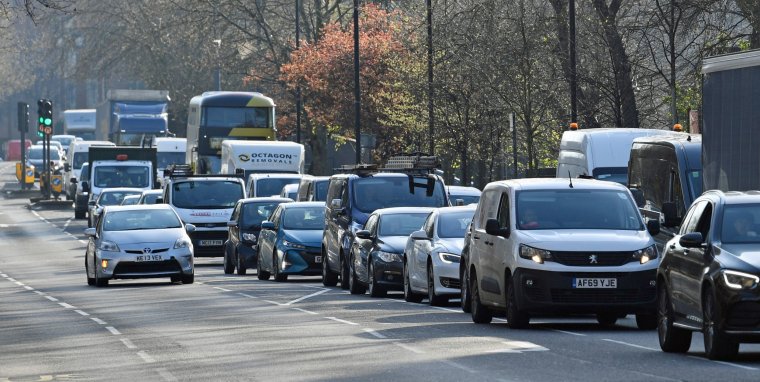A new study by the UK Health Security Agency (UKHSA) has found noise pollution can take years of people’s lives.
Previous studies have established that living in an area with higher noise levels caused by traffic can lead to stress and sleep disturbance.
As part of the new study, the government department assessed the impact of transport noise in every local authority in England – and found it can have a ”significant impact on our health”.
Researchers used a metric called Disability Adjusted Life Years (DALYs) to measure noise impact, with each representing one year of a person being in good health.
The study found in 2018 around 100,000 years of good health were lost due to road traffic noise, 13,000 were lost from railway noise and 17,000 from aircraft noise.
It found most of the losses were caused by noise having a direct impact on people’s wellbeing and the quality of people’s lives.
The study also revealed that noise increased the risk of people having strokes and developing serious health conditions, such as ischemic heart disease (heart problems caused by narrowed heart arteries), diabetes, depression and anxiety.
i finds out everything you need to know about the study, and how each area is affected.

The impact of noise
Researchers found noise impact varied across regions and local authority areas as a result of each having different noise levels, population sizes and variable impact of diseases on communities.
They found people in London, the South East and North West regions had the highest number of years of good health lost as a result of road-traffic noise.
It also found the London also had the most years of good health as a result of aircraft noise.
Researchers claimed estimates may be conservative because the research only examined roads with high traffic volumes and excluded people exposed to lower levels of traffic noise.
The years of good health lost as a result of road-traffic noise was 1.1x to 2.2x higher in London than in other areas of the country.
The study also found that 40 per cent of English adults were exposed to long-term average road-traffic noise levels, which exceeded 50 decibels, and percentages varied across different areas.
The research found people’s health is most likely to be affected if they are exposed to noise exceeding 50 decibels over a 24-hour period
Around 5 per cent of the population in England were blasted with aircraft noise above 50 decibels, and there were higher levels of noise in and around London.
While 5 per cent were exposed to railway noise exceeding 50 decibels but there were less variations across local authorities in that category than for road and aircraft noise.


